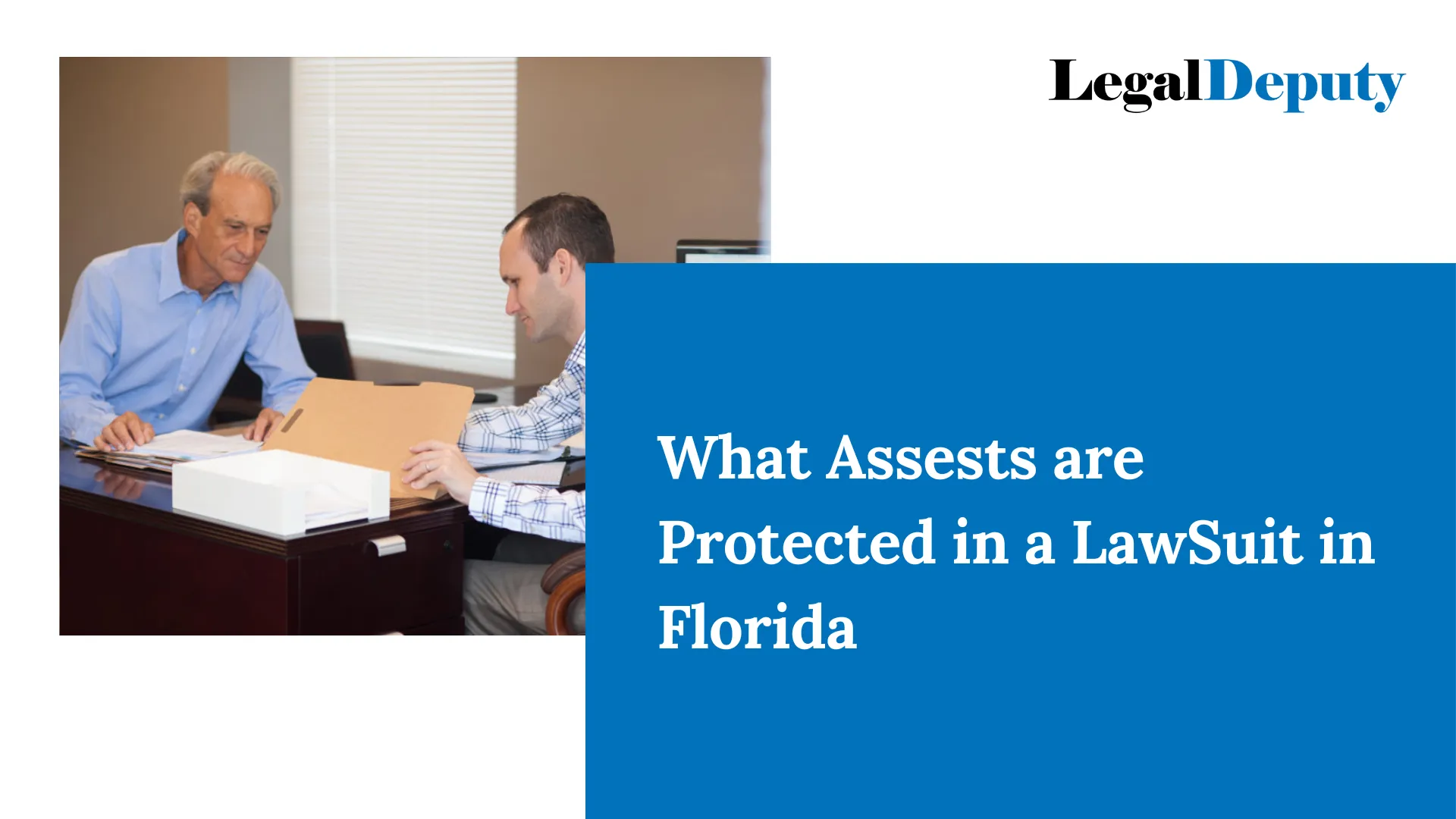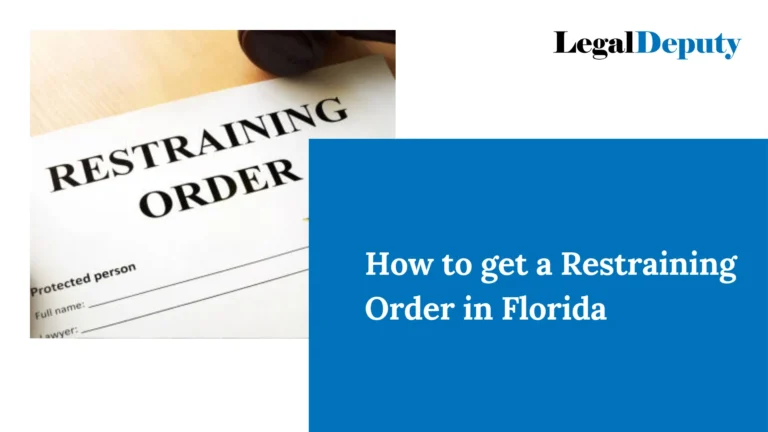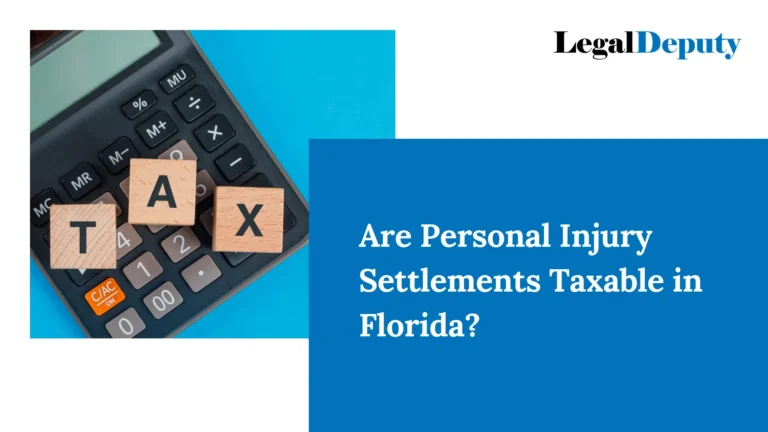What Assets are Protected in a Lawsuit in Florida? – An Ultimate Guide
Embarking on the journey of asset protection can be likened to securing the fortress of your financial well-being. In the legal landscape of Florida, understanding how to shield your assets in the event of a lawsuit is not just a matter of financial prudence; it’s a strategic move that safeguards the fruits of your hard work.
Whether you’re a homeowner, business owner, or planning for retirement, navigating the intricacies of asset protection is paramount.
In the sunshine state, where laws uniquely shape the terrain, grasping the nuances of what assets are shielded can make the difference between financial security and vulnerability. Join us as we delve into the protective layers Florida offers, demystifying the crucial question: What assets are protected in a lawsuit in Florida? Let’s embark on this legal journey together, ensuring your assets stand resilient against unforeseen storms.
Homestead Exemption in Florida: Safeguarding Your Sanctuary
In the vast landscape of legal safeguards, the Florida Homestead Exemption emerges as a beacon, casting a protective shield over one’s primary residence. Your home is not merely a structure of bricks and mortar; it’s a sanctuary where cherished memories are woven into the fabric of everyday life. Understanding how the Homestead Exemption in Florida operates is crucial, not only for homeowners but for anyone seeking to fortify their assets in the face of potential lawsuits.
So, what precisely does the Homestead Exemption protect in the event of legal challenges? Florida’s Homestead Exemption shields a designated portion of the assessed value of your primary residence from creditors during a lawsuit. This exemption isn’t limited to the physical structure; it extends to the land and can even encompass additional structures on the property, provided they contribute to the residential use.
To qualify for the Homestead Exemption, certain criteria must be met, such as using the property as your primary residence and meeting acreage limitations. This legal provision stands as a testament to Florida’s commitment to preserving the sanctity of homes and ensuring that families have a secure haven, even when facing financial storms.
However, it’s crucial to note that the Homestead Exemption has its limitations. While it provides robust protection against unsecured debts, certain debts, such as mortgages, property taxes, and construction liens, may still encumber your homestead. Understanding the intricacies of this exemption is a key step in navigating the legal landscape, ensuring that your cherished abode remains a fortress of stability in the face of adversity.
Protection of Retirement Accounts: Safeguarding Your Future Nest Egg
As the sun sets on your career and the golden years beckon, the protection of your hard-earned savings becomes a paramount concern. In the legal landscape of Florida, the shield for your future nest egg comes in the form of robust protections for retirement accounts. Understanding the nuances of these safeguards is not just a matter of financial acumen; it’s a pledge to secure the tranquility of your retirement.
Florida law recognizes the sanctity of retirement savings, aiming to shield individuals from the depletion of their nest egg in the face of legal challenges. Retirement accounts such as 401(k)s and IRAs stand as bulwarks, offering a measure of protection against creditors seeking to access your savings.
The protection of retirement accounts in Florida isn’t without its conditions. While these accounts are generally shielded, there are limitations on the amount protected, and contributions made within a certain time frame might receive different treatment. Understanding the intricacies of these protections ensures that your retirement savings remain insulated, allowing you to traverse the golden years with peace of mind.
It’s important to note that the goal of these protections is to foster a sense of financial security for individuals as they transition into retirement. By safeguarding your retirement accounts, Florida law encourages responsible financial planning, empowering you to face the future with confidence.
Tenancy by Entirety: Weaving a Legal Shield Around Shared Assets
In the intricate tapestry of legal protections for assets in Florida, the concept of “Tenancy by Entirety” emerges as a unique and potent thread. This legal arrangement, available to married couples, weaves a protective shield around shared assets, offering a level of security that extends beyond individual ownership. Understanding how Tenancy by Entirety operates is not just a matter of legal expertise; it’s a testament to the fortitude that can be achieved when facing life’s uncertainties as a united front.
So, what exactly is Tenancy by Entirety, and how does it safeguard assets in the event of a lawsuit? In Florida, when spouses own property as tenants by the entirety, each spouse is considered to own the entire property rather than a distinct share. This legal distinction is crucial because it means that individual creditors of one spouse generally cannot access the property to satisfy debts.
The protection offered by Tenancy by Entirety extends beyond the family home; it can apply to other types of real property and, in some cases, personal property as well. This legal arrangement is not without conditions, and it typically requires that the couple remains married for the protection to be in force.
In the face of legal challenges, Tenancy by Entirety acts as a formidable safeguard, ensuring that shared assets remain insulated from the individual debts of either spouse. It symbolizes a commitment not just to joint ownership but to mutual protection, allowing married couples in Florida to face the uncertainties of life with a shared sense of security.
Personal Property Exemptions: Nurturing the Heart of Your Possessions
Beyond the concrete and the tangible, personal property holds a special place in our lives: the sentimental, the cherished, and the everyday essentials. In the legal realm of Florida, the protection of these possessions goes beyond sentimentality; it’s a structured defense against the tumultuous winds of unforeseen legal challenges. Join us as we unravel the nuances of Personal Property Exemptions, exploring not just what is protected, but the very essence of what makes a house a home.
At its core, Personal Property Exemptions in Florida encompass a diverse array of items, shielding them from the reach of creditors in the event of a lawsuit. These exemptions recognize the importance of preserving the essentials that define a person’s daily life, allowing individuals and families to maintain a semblance of normalcy, even when facing financial storms.
Examples of protected personal property span a broad spectrum, encompassing necessary household items, clothing, furniture, and even certain tools of trade. These exemptions acknowledge the fundamental need for individuals to retain the basic elements that make a house not just a structure but a warm and secure home.
Yet, like any legal provision, Personal Property Exemptions come with conditions and limitations. While certain items may be protected up to a specified dollar limit, others may be shielded without such constraints. Understanding these intricacies ensures that individuals can safeguard their possessions effectively.
Consider, for instance, a family heirloom passed down through generations or the tools that enable someone to earn a livelihood. These aren’t just items; they’re threads in the fabric of our lives. Florida’s Personal Property Exemptions recognize this, offering a structured yet humane approach to asset protection.
Business Entities and Asset Protection: Crafting a Shield for Your Entrepreneurial Journey
Embarking on the entrepreneurial journey is a thrilling endeavor, akin to setting sail in uncharted waters. In the dynamic business landscape of Florida, where opportunity and risk coexist, the importance of proper business structuring becomes a compass that guides the course of your venture. Join us as we navigate the seas of asset protection, exploring not just the legal intricacies but the essence of safeguarding your dreams and hard work.
At the heart of this journey is the recognition that a business, regardless of size, is its own entity, distinct from the individuals behind its creation. Choosing the right business structure is not merely a matter of paperwork; it’s a strategic move that can determine the extent to which personal assets are shielded from potential lawsuits.
Florida offers entrepreneurs a powerful tool in the form of limited liability protection. This legal provision allows business owners to separate their personal assets from those of the business, creating a robust barrier that shields personal wealth from business-related liabilities. Whether you’re running a small startup or a thriving enterprise, this separation is pivotal in mitigating the inherent risks that come with the territory.
How does this shield work in practice? Picture your business as a protective fortress. In the event of legal challenges, the limited liability protection ensures that the arrows aimed at the business don’t breach the personal walls you’ve meticulously built. Your home, savings, and other personal assets remain guarded, allowing you to navigate the complexities of entrepreneurship with a sense of security.
Yet, the crafting of this shield is an art in itself. Proper business structuring involves understanding the nuances of different entities – be it a Limited Liability Company (LLC), Corporation, or other forms. Each entity comes with its own strengths and considerations, shaping the protective layers uniquely to your business model.
Common Mistakes to Avoid: Navigating the Pitfalls of Asset Protection
In the intricate dance of asset protection, missteps can be costly, akin to navigating a complex maze with high stakes. As we embark on the quest to fortify your financial fortress in Florida, it’s crucial to shine a light on the common mistakes that could inadvertently compromise the very safeguards you’ve put in place. Join us as we explore not just the legal nuances but the practical wisdom that shields your assets from the shadows of potential errors.
One of the most prevalent pitfalls is procrastination – the tendency to delay or overlook the establishment of protective measures until a storm is on the horizon. Asset protection is a proactive endeavor, not a reactive one. Waiting until legal challenges arise can severely limit the effectiveness of these safeguards. It’s akin to donning armor after the battle has begun. The key is to act preemptively, weaving the protective layers well before the need arises.
Another common misstep is an incomplete understanding of the nuances surrounding specific protections, such as the Homestead Exemption or the intricacies of limited liability protection for businesses. It’s not just about having these safeguards in place; it’s about comprehending their strengths and limitations. Seeking professional advice, whether from attorneys or financial experts, can illuminate these complexities, ensuring that your strategy is comprehensive and tailored to your unique circumstances.
Overreliance on a single form of protection is a pitfall that many inadvertently stumble into. While the Homestead Exemption, for instance, offers robust protection for your primary residence, it doesn’t cover all asset classes. Diversifying your protective measures is akin to building a multi-layered defense, ensuring that your assets are shielded comprehensively.
Tips for avoiding these pitfalls involve regular reviews and updates to your asset protection strategy. Life is dynamic, and so too should be your safeguards. Changes in financial status, family structure, or business endeavors may necessitate adjustments to your protective layers. Regular consultations with legal and financial professionals ensure that your strategy remains resilient against the evolving landscape.
Consulting a Legal Professional: Navigating the Labyrinth of Asset Protection
In the intricate realm of asset protection, the legal landscape often resembles a labyrinth where each turn reveals new complexities. Navigating this maze requires not just a map but a seasoned guide who can decipher the nuances of Florida’s laws. As we delve into the final leg of our journey, the importance of consulting a legal professional becomes a beacon that illuminates the path to comprehensive asset protection.
The complexities of asset protection laws in Florida are akin to a finely woven tapestry. Each thread, each legal provision, and each safeguard is interwoven with precision, creating a defense that can withstand even the most intricate legal challenges. Attempting to unravel this tapestry without professional guidance is akin to embarking on a treacherous journey without a compass.
Qualified attorneys specializing in asset protection understand the subtleties that can make the difference between a robust strategy and one that falls short. They bring not just legal expertise but a keen awareness of the unique dynamics that shape your financial landscape. Whether it’s deciphering the intricacies of exemptions, structuring your business for optimal protection, or ensuring your retirement accounts are shielded effectively, a legal professional is your partner in crafting a strategy tailored to your specific needs.
We encourage you to view the consultation with a qualified attorney not merely as a legal transaction but as a collaborative effort to fortify your financial well-being. This is a partnership built on trust, where your goals and concerns are met with a depth of legal insight that transcends the complexities of the statutes.
To embark on this crucial step, take a moment to reflect on your own financial journey. Picture the legal professional not just as an advisor but as a co-captain navigating the ship through uncharted waters. By seeking their counsel, you’re not just obtaining legal expertise; you’re empowering yourself with a steadfast ally in safeguarding what matters most.
Conclusion
As we draw the curtains on our exploration of asset protection in Florida, remember: your financial fortress is not just a collection of possessions; it’s a legacy. From the robust shield of the Homestead Exemption to the strategic structuring of business entities, each layer we’ve unraveled is a stitch in the tapestry of your financial well-being.
Proactive measures are the heartbeat of resilient asset protection. Understanding the nuances of Florida’s laws empowers you to navigate the unexpected twists with confidence. Whether safeguarding your home, retirement accounts, personal treasures, or entrepreneurial endeavors, a strategic approach paves the way for a secure future.
In the face of legal storms, remembering the lessons of Tenancy by Entirety unity strengthens the shield. Yet, beware the pitfalls and consult legal professionals as co-captains on your journey. Their expertise is not just a compass but a guiding hand through the complexities.
Disclaimer
The information provided on this blog is intended for general informational purposes only and should not be construed as legal advice. While we strive to ensure the accuracy and currency of the content, the legal landscape is dynamic and subject to change. Readers are encouraged to seek professional legal advice tailored to their specific circumstances.
No attorney-client relationship is established through the consumption of this content. The blog’s authors and publishers are not liable for any reliance on the information herein. Legal matters are often complex and fact-dependent; therefore, consulting a qualified attorney is crucial to address individual concerns.
This blog does not endorse or guarantee the accuracy of external links or content from third-party sources. Any views expressed are those of the authors and do not necessarily represent the opinions of any affiliated organizations or institutions.
Readers are advised to independently verify information and consult with legal professionals for guidance on their particular situations. By accessing and using this blog, you acknowledge and agree to the terms of this disclaimer.



